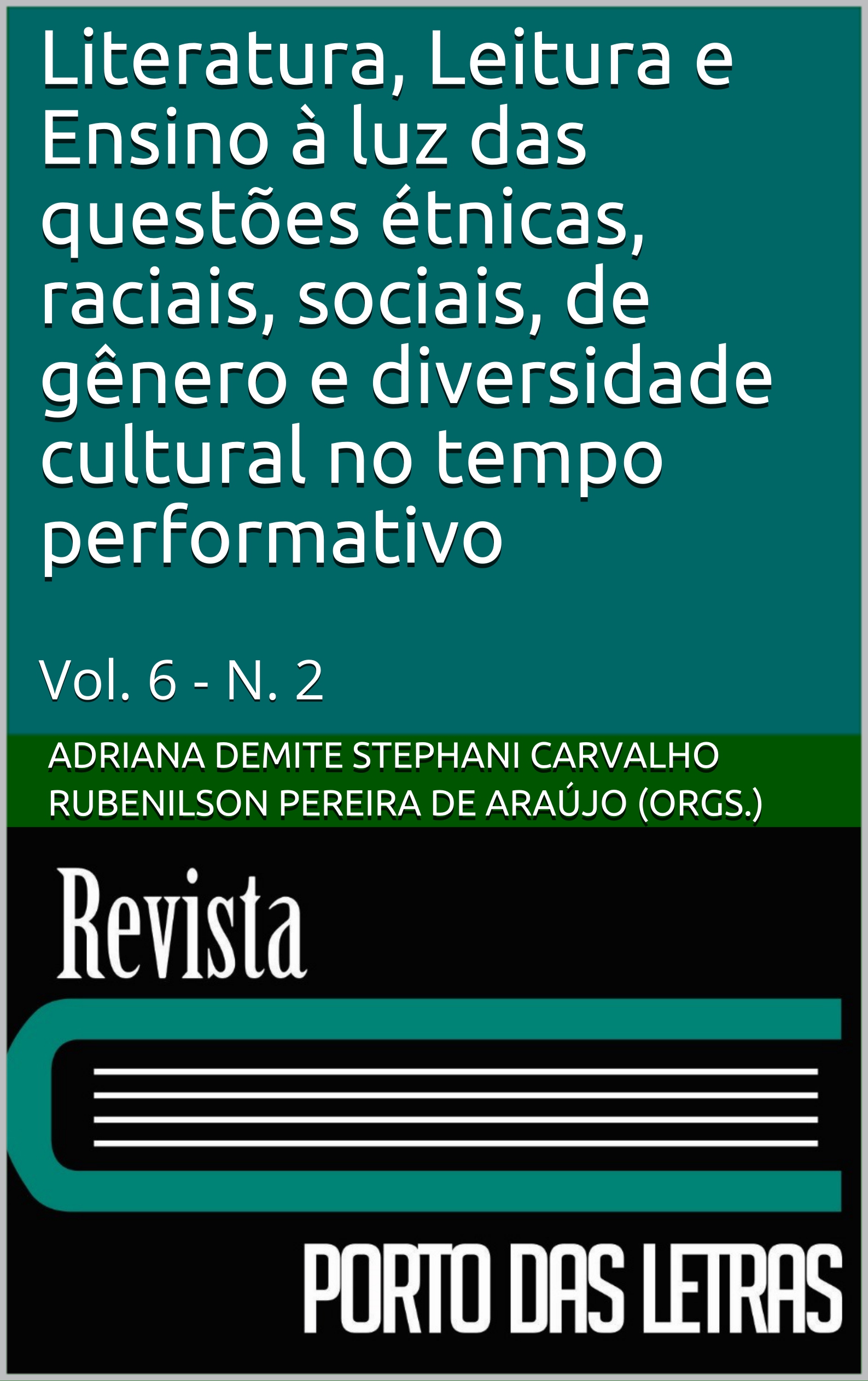Gênero, Família e Literatura Infantil:
Homoafetividade em “O Menino que brincava de ser”, de Georgina da Costa Martins
Keywords:
Identity. Genre. Queer Theory. Cultural Studies. Children's literature.Abstract
This article intends to answer the question: how is the triadic relationship between gender, family and prejudice in Georgina da Costa Martins' play "The Boy Who Played to Be"? The focus is on recognizing in the literature in question the discursive passages that allow us to analyze: a) the theme of sexual diversity in the work; b) - the discursive configurations that reveal the instances of the family and society in relation to sexual diversity; c) - unveiling of manifestations of prejudice and sexual identity, revealing how the work addresses these issues. The purpose of the research is to think a way to reflect about the insertion of gender and sexuality discussions in school through the juvenile literature. Two sets of theorists will be brought to bear on the discussions: 1 - questions of gender and sexuality will be thought from queer theory theorists; 2 - the expansion of the discussions on sexuality will be carried out in line with more contemporary propositions of the writings on identity in the perspective of Cultural Studies. The result of this research is the fact that topics such as the one addressed here are not echoed in many academic instances and for this reason must be exposed more often to reach higher levels of research and social relevance.
References
ALMEIDA, Rogério. O mundo, os homens e as suas coisas: filosofia trágica e pedagogia da escolha. Tese de Livre Docência. Departamento de Administração Escolar. Faculdade de Educação. USP. São Paulo: 2015.
ARAUJO, Rubenilson Pereira de. Estranhando o currículo: a temática homoafetiva no ensino de literatura infantil – 1. ed. Rio de Janeiro: Metanoia, 2018.
BÉRA, Matthieu & YVON, Lamy. Sociologia da Cultura. São Paulo: Edições SESC, 2015.
BHABHA, Homi K.. O local da cultura. Belo Horizonte: Editora UFMG, 2014.
BOESCH, Ernest. Symbolic Action Theory and Cultural Psychology. Berlim – Heidelberg Nova York: Springer, 1991.
BORGES, Luciana e FERNANDES, Antônio. O corpo na literatura e na arte: teorias e leituras. Universidade Federal de Goiás. Ed. Funape, 2013.
BOURDIER. Pierre. Razões Práticas: sobre a teoria da ação. São Paulo: Papirus, 2011.
BUTLER, J. Corpos que pesam: sobre os limites discursivos do “sexo”. In: LOURO, G. L. (org.): O corpo educado - Pedagogias da sexualidade. Belo Horizonte. Autêntica, 2000.
CANDIDO, Antonio. O direito à literatura. In: _____. Vários escritos. São Paulo: Duas Cidades, 2004, p. 169-192.
CEVASCO, Maria Elisa. A formação dos estudos culturais. São Paulo: Boitempo, 2016.
CONSTITUIÇÃO DA REPÚBLICA FEDERATIVA DO BRASIL DE 1988. Disponível em http://www.senado.gov.br/atividade/const/con1988/con1988_18.02.2016/CON1988.asp. Acesso em 01 de julho de 2018.
FOUCAULT, Michael. História da sexualidade I: a vontade de saber. Rio de Janeiro: Edições Graal, 2010.
HALL, Stuart. Quem precisa da identidade? SILVA, Tomaz Tadeu (Org.). Identidade e diferença - a perspectiva dos Estudos Culturais. Petrópolis - RJ: Vozes, 2014, p. 103-133.
MARTINS, Georgina da Costa. O menino que brincava de ser. 4ª ed.- São Paulo, Ed. Cultura do Livro, 2000.
MISKOLCI, Richard. Teoria Queer: um aprendizado pelas diferenças. Ed. Autêntica: UFOP- Universidade Federal de Ouro Preto, 2012.
PAMUK, Orhan. O romance no novo mundo. In: MACHADO, Cassiano Elek (Org). Pensar a Cultura. Porto Alegre: Arquipélado Editorial, 2013, p. 153-172.
PRINS, B.; MEIJER, I. C. Como os corpos se tornam matéria: entrevista com Judith Butler. Revista Estudos Feministas [online].2002, v.10.n.1. p. 155-167.
SAMPAIO, Juliano Casimiro de Camargo & GONÇALVES, Amanda Diniz. Experiência Corporal Estética: A emergência de novas ações simbólicas no trabalho do ator. Moringa, v. 8, n. 2, 2017, p. 109-124.
WAGNER, Roy. A invenção da cultura. São Paulo: Cosac Naify, 2012.
Downloads
Published
How to Cite
Issue
Section
License
Os autores concordam com os termos da Declaração de Direito Autoral, que se aplicará a esta submissão caso seja publicada nesta revista (comentários ao editor podem ser incluídos a seguir).

